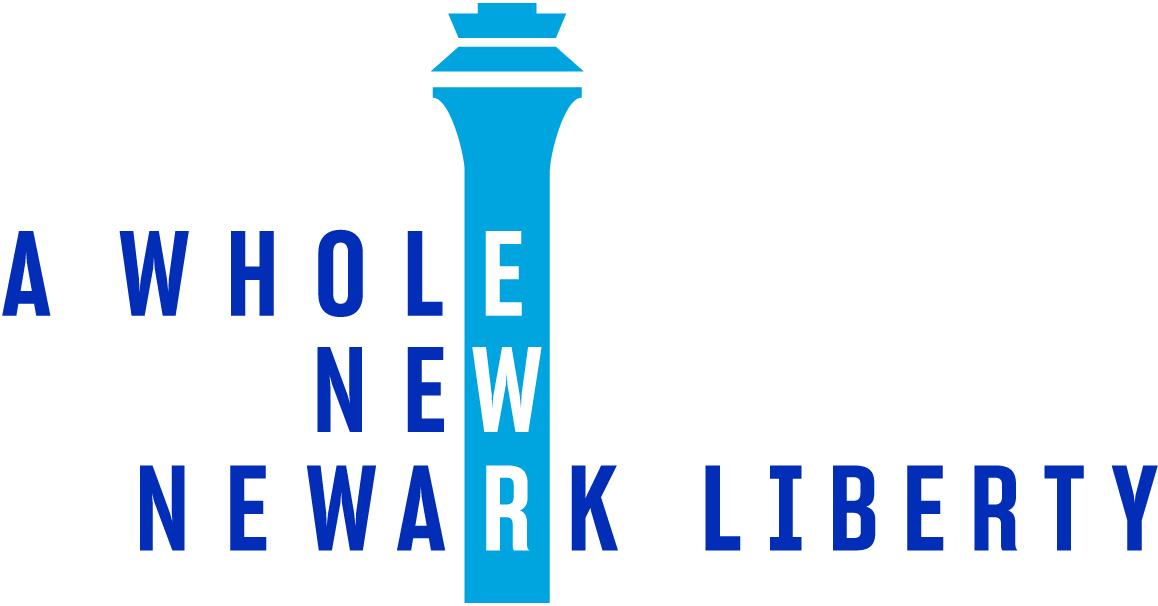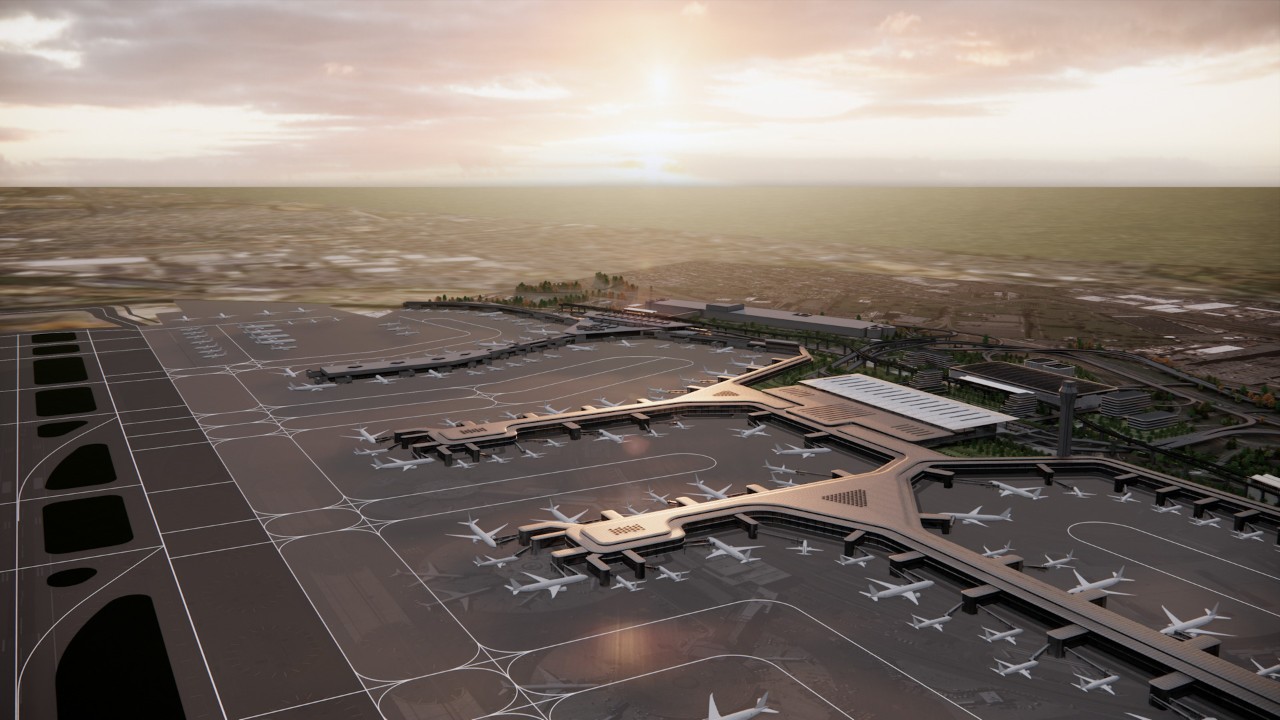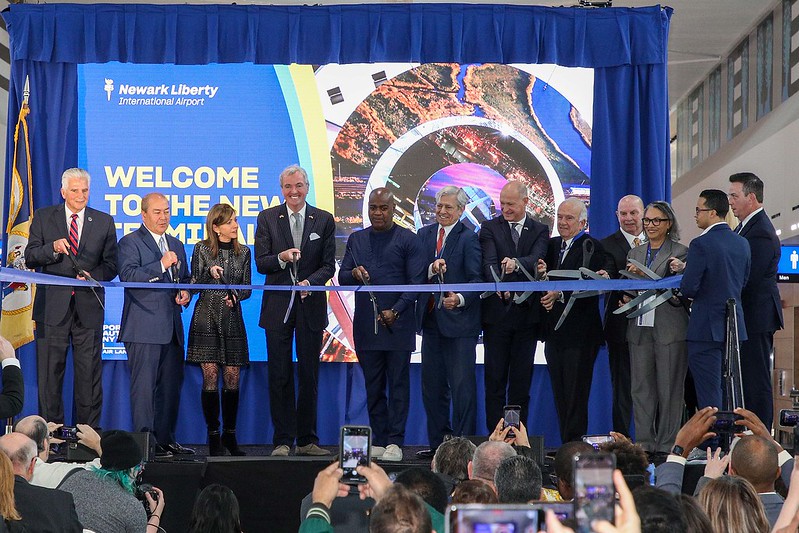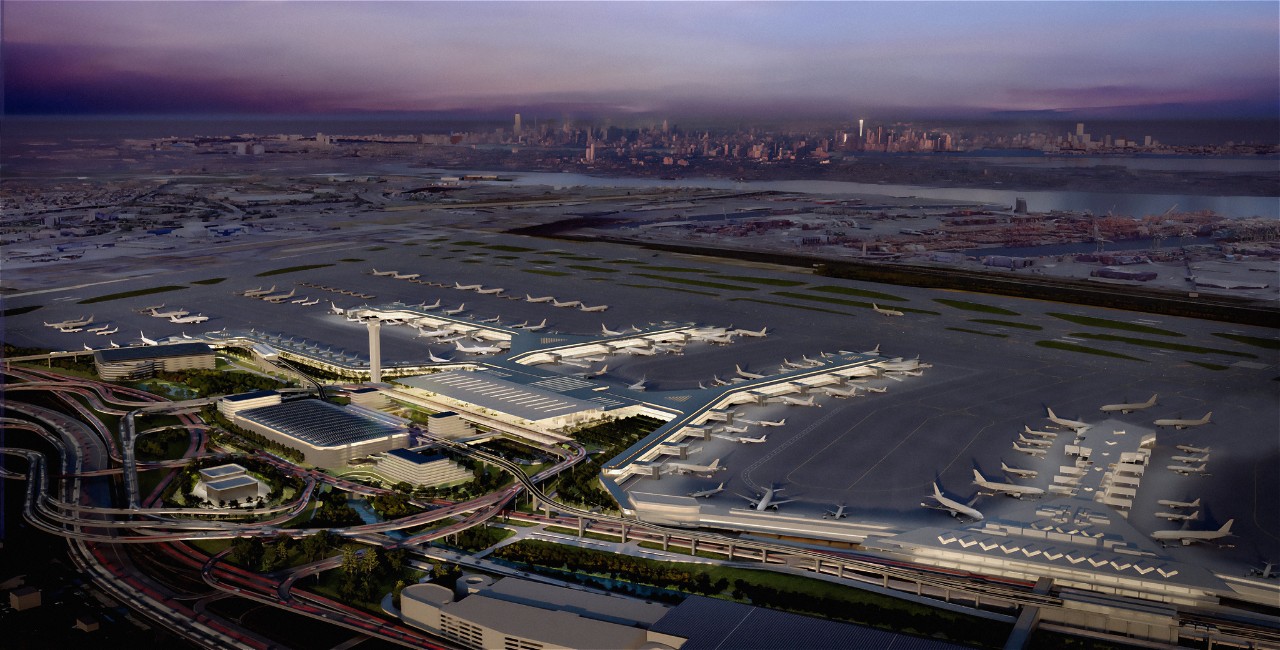Building a world-class gateway for the New Jersey and New York region
The Port Authority has begun the transformation of the Newark Liberty International Airport into a modern hub that accommodates increasing passenger numbers while supporting the regional economy and the vibrant culture and diversity of its communities.
The $2.7 billion cornerstone of the project, the brand new Terminal A, was completed in 2023 and received immediate accolades, including being named the best new terminal in the world. Terminal A offers a glimpse into the future of what travelers can expect and what Newark Airport will become when fully completed. It represents the beginning of a renaissance that will take the 97-year-old airport into the 21st century and beyond, offering modern terminals, streamlined roadways, more efficient runways, and new rail systems to transport passengers and airport employees seamlessly.
The phased development sets the course for a reimagined Newark Liberty that will accommodate more passengers and aircraft while reducing delays and congestion, delivering a world-class air travel experience from curb to gate.
Explore the Projects
A New AirTrain
The Port Authority will replace the outdated AirTrain Newark with a modern, 2.5-mile automated train system to accommodate a ridership forecasted to grow by 50% by 2040. A critical component of the airport, the system carries about 33,000 passengers and employees daily, or approximately 12 million passengers annually. It provides access to the Northeast Corridor Rail Link Station, and allows customers and employees to transfer between terminals, parking lots, and rental car facilities. The new project is anticipated to generate 1,380 total job years directly and indirectly, $125 million in direct wages, and nearly $300 million in economic activity over the project's life.
The Vision Plan
The EWR Vision Plan charts a comprehensive reimagining of the airport, with modern terminals and infrastructure, a more intuitive roadway network, and a redesigned taxiway network to accommodate more aircraft and reduce delays. The blueprint allows for future growth while serving the evolving needs of passengers, airlines, and the community. Extensive outreach to airport tenants, operational partners, and the public helped shape the visionary plan.
EWR Station Access
The EWR Station Access project will increase public transit access to Newark Liberty International Airport and New York City for Newark and Elizabeth's underserved communities. The project will enable easier local commutes and streamlined airport access, shortening 40-minute transit trips to EWR and Newark's Penn Station to less than 10 minutes.
The project will include an extension of the existing pedestrian bridge over station platforms and tracks to a new public access area off Frelinghuysen Avenue. The public access area will consist of a pick-up/drop-off point for private vehicles, taxis, buses, and for-hire vehicles, along with bicyclist and pedestrian access. Construction is expected to be completed in 2026.
An Award-Winning terminal A
Terminal A is the centerpiece of an airport-wide renaissance designed to establish the airport as a world-class gateway for the New Jersey and New York region. The new 1 million-square-foot Terminal A replaced the previous terminal that opened in 1973. The 33-gate facility features airy, light-filled concourses alongside state-of-the-art digital technology, modern passenger amenities, superior dining and retail options, and an innovative public art program showcasing dozens of local artists. Terminal A has been designed and constructed to the standards of LEED gold certification from the U.S. Green Building Council.



